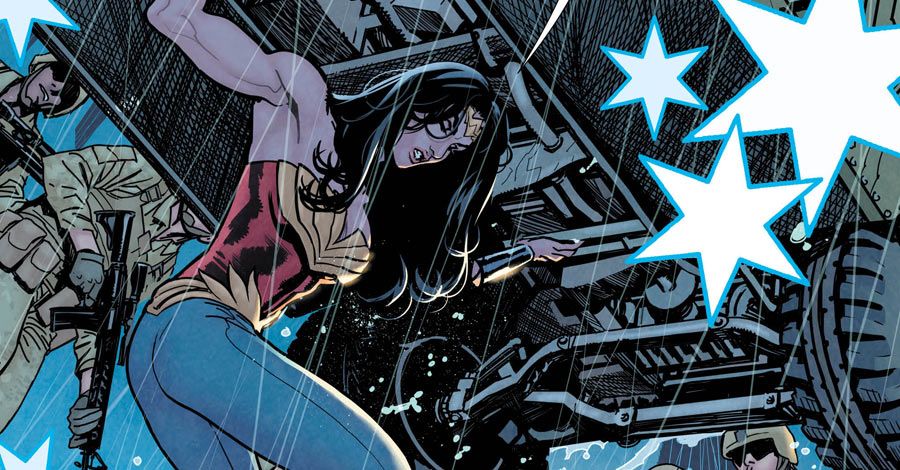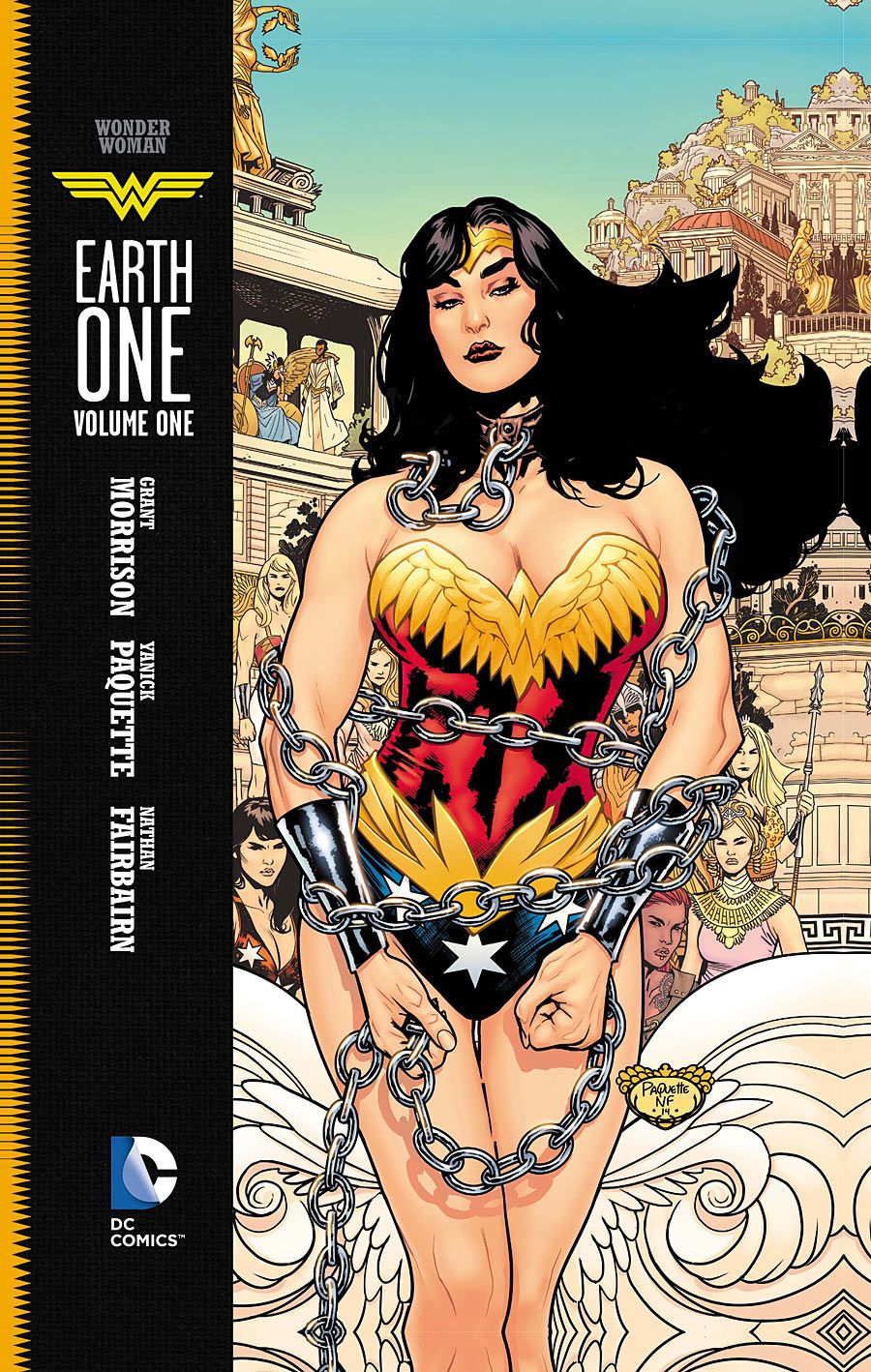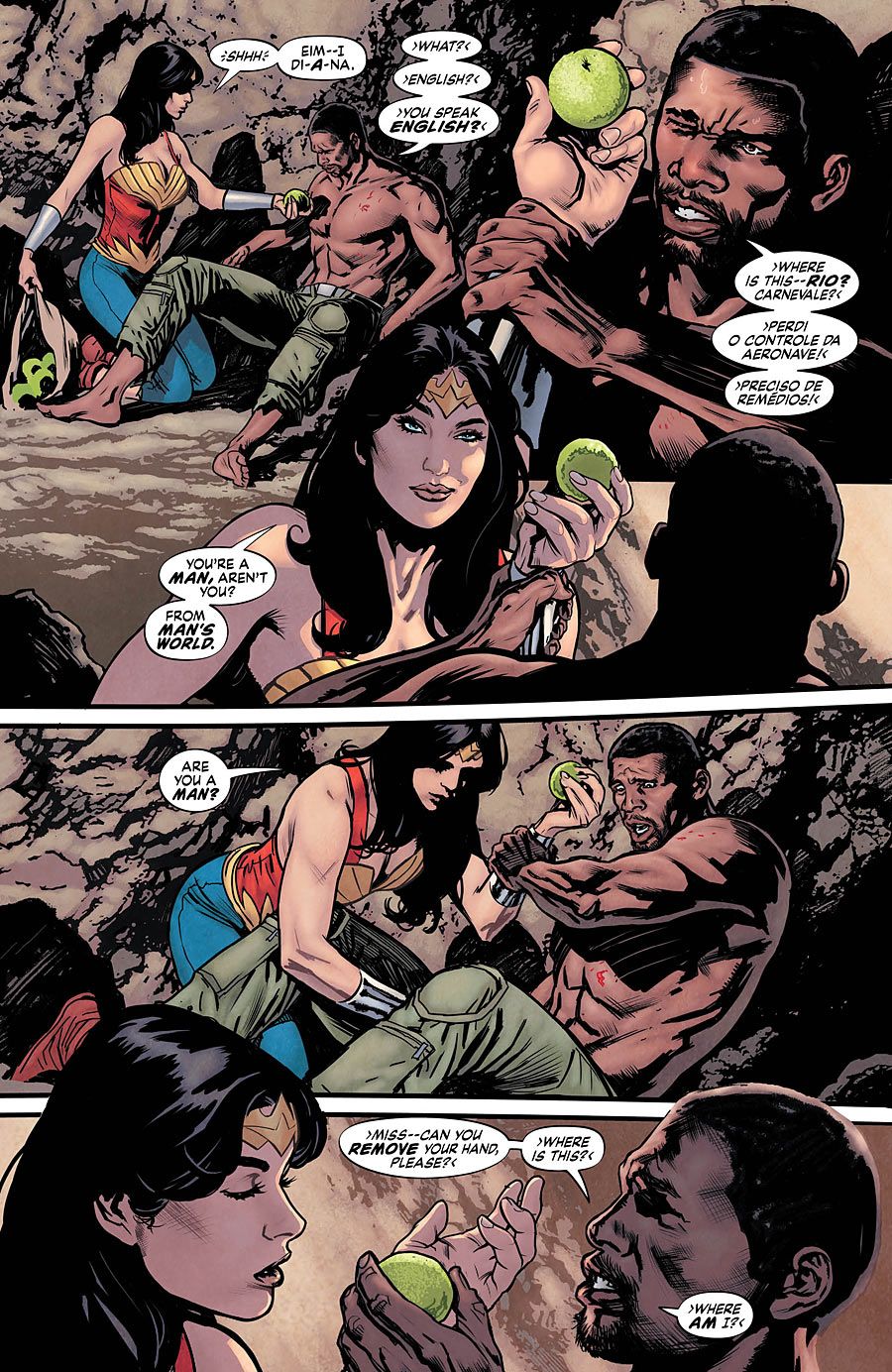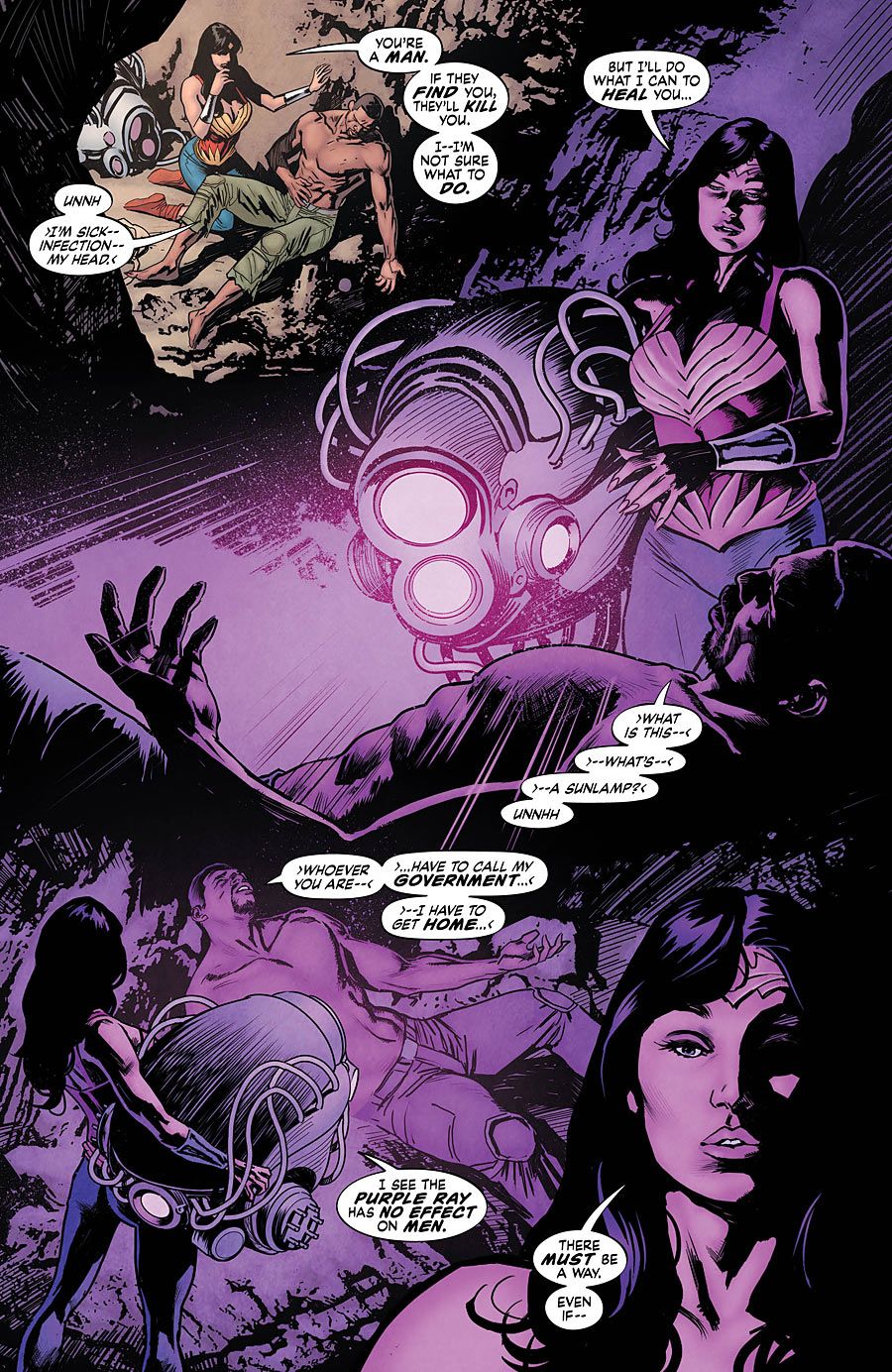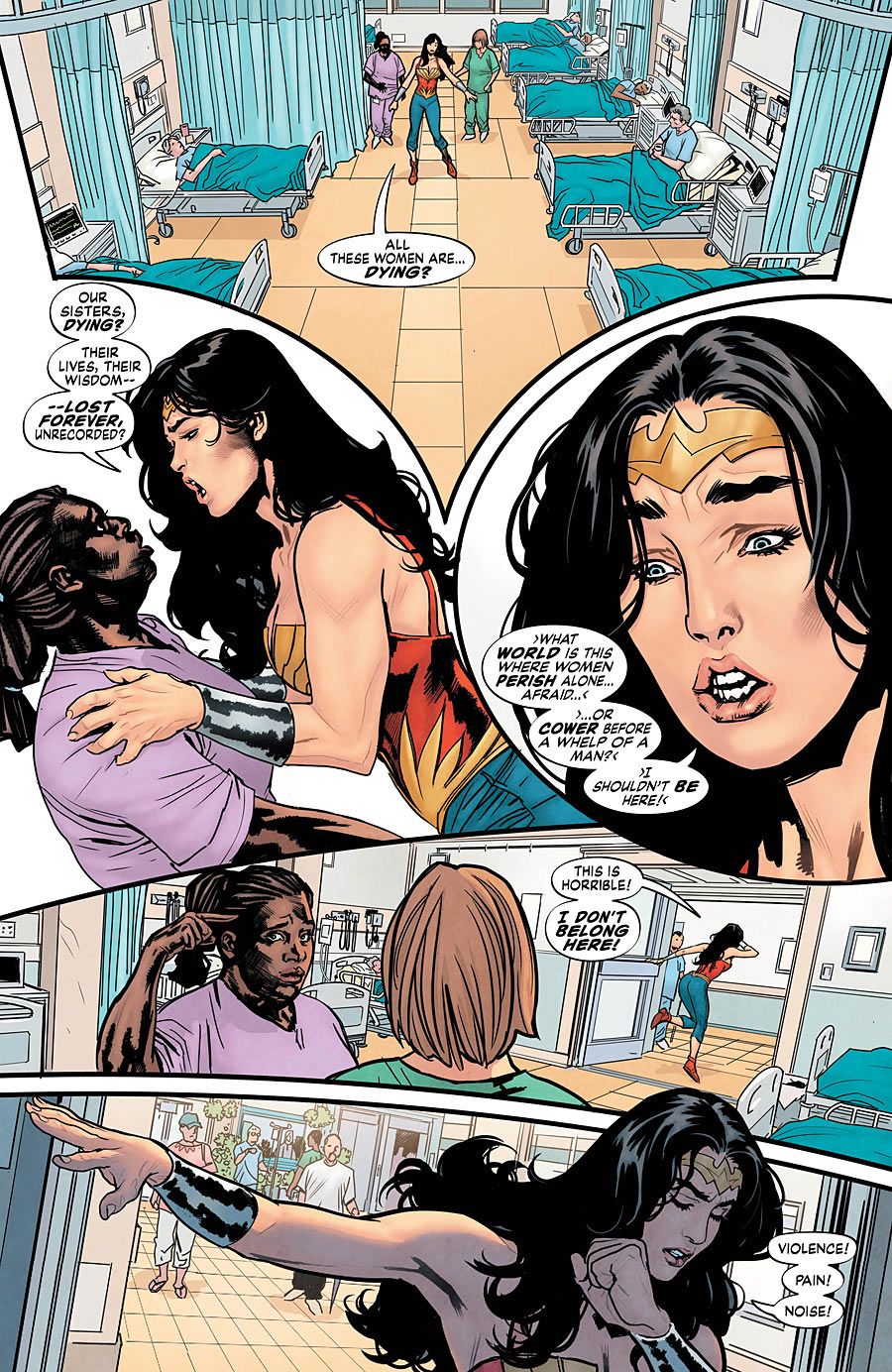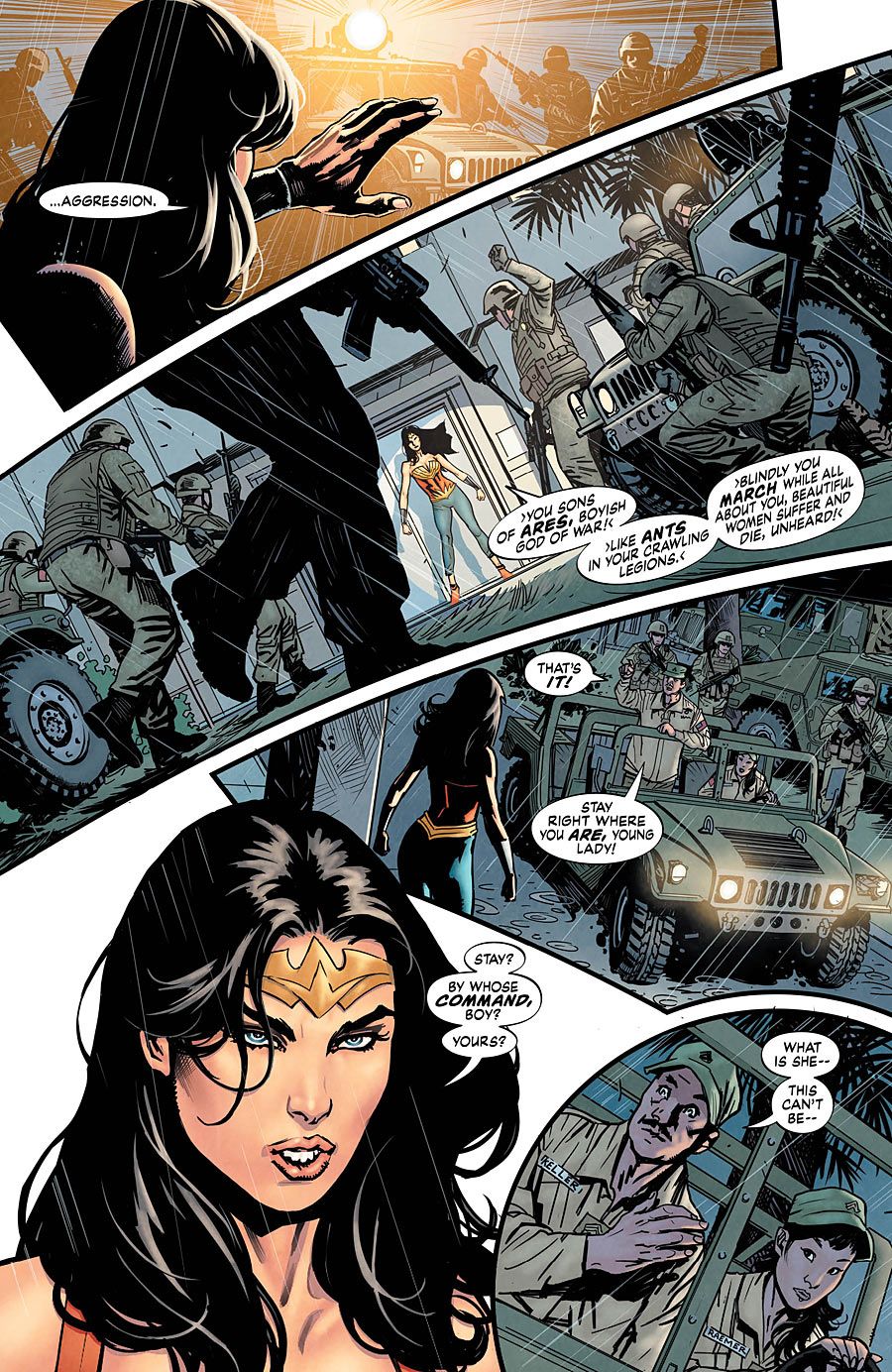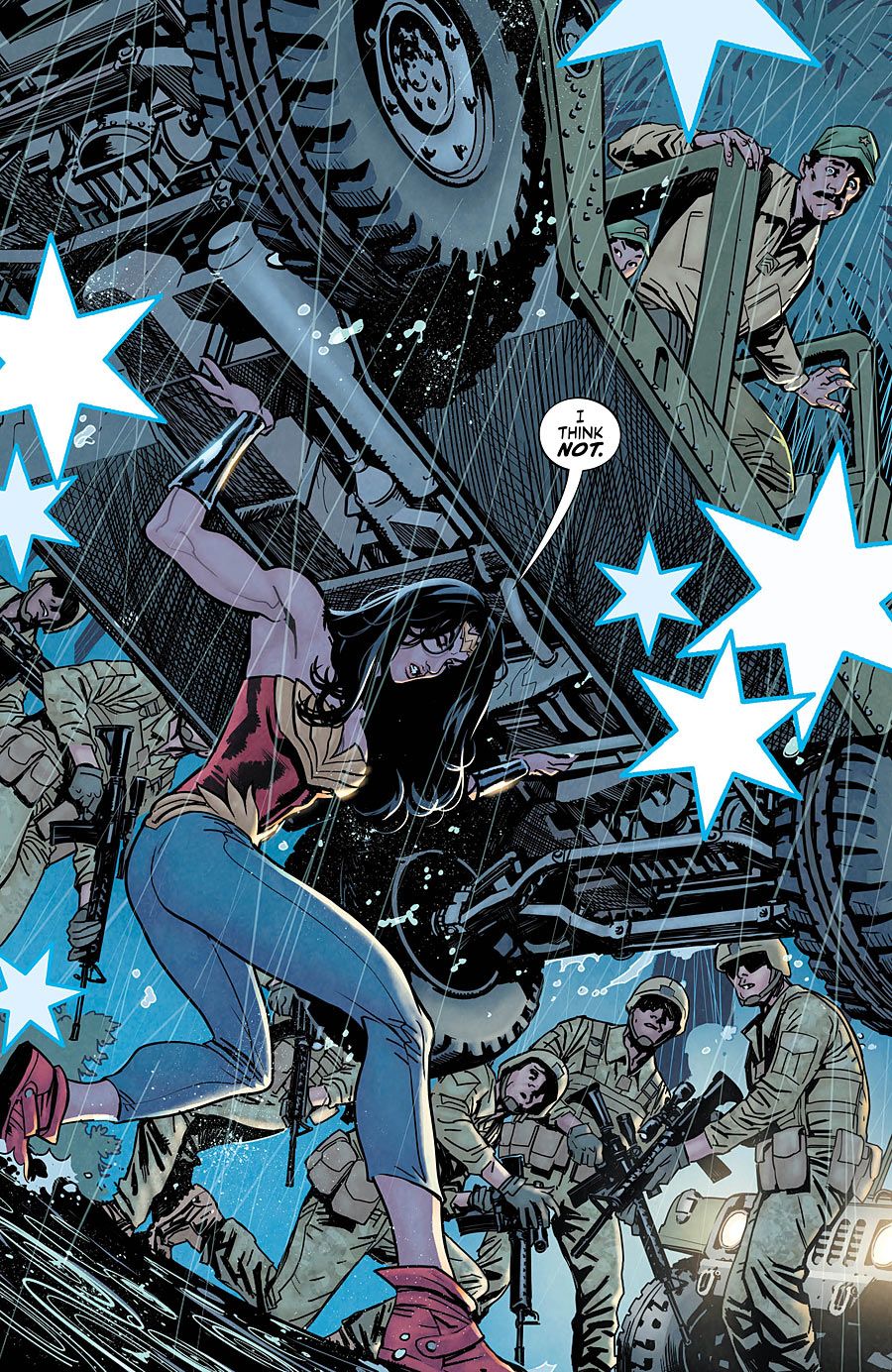SPOILER WARNING: This article contains major spoilers for "Wonder Woman: Earth One," on sale April 6.
Writer Grant Morrison and artist Yanick Paquette have reinvented Wonder Woman for a new generation of readers in the latest installment of DC Comics' New York Times best-selling Earth One original graphic novels. "Wonder Woman: Earth One," Volume 1 -- and yes, Morrison confirmed there will be more volumes -- features a young Amazonian princess who doesn't leave Paradise Island for war or the love of Steve Trevor, but both the fallen soldier and the militant force of man's world are major factors in Diana's new secret origin.
CBR News connected with Morrison about the highly-anticipated project, slated for release on April 6, and the all-star writer shared his thoughts about the legacy of William Moulton Marston's 75 year-old superhero, why it was important to make changes to Wonder Woman's past for this story and why many of Diana's supporting characters also needed to be reimagined for 2016.
Morrison also revealed that the overall theme of the first "Wonder Woman: Earth One" volume is very much about truth and lies, which makes sense for a superhero that possesses a magic lasso that forces those intertwined to be straightforward and honest, a fitting aspect from her creator, who is also credited with developing the systolic blood pressure test, a key component used in lie detectors.
CBR News: William Moulton Marston was a pretty remarkable man, and I don't think he gets the credit of Jerry Siegel and Joe Shuster or Bob Kane and Bill Finger. How important is the creator of Wonder Woman within the history of comics?
Grant Morrison: I think Marston has to definitely be seen as one of the pantheon of great originators within comics. And I think what's most interesting about him is that while Siegel and Shuster were bringing in the influence of immigrant kids during the Great Depression and Bob Kane and Bill Finger were bringing in wealth but also a dark strand to comics, I think what Marston brought in was actually counter-culture and alternatives, which I think has since become a part of comics all the way through.
Superman was rich in science fiction and Batman was crime and mystery, but with Wonder Woman you were getting the influences of alternative culture and total feminism. It was all about magic and weirdness, too, with alternative lifestyles and alternative ideas, which was basically reflective of Marston's entire life. That's what he was. He was part of alternative culture. As a result, I think Wonder Woman has always emboldened that strand. And that's what makes her so strange. The character has been portrayed in lots of different ways. We've had the girl scout version. We've had the warrior version. But really, she comes from a much stranger tradition. And that's what I found out about her and what I became interested about her as a character.
I love this description of Wonder Woman's high-concept from one of Steve Trevor's superiors: "... a transparent mysterious airplane piloted by a teenage swimsuit model strong enough to bench-press a jeep." But as we've discussed, that's not the whole story. When developing a new secret origin for her, what parts of Wonder Woman's backstory were non-negotiable for you and what parts were ripe for change?
I thought the World War II origin really didn't work anymore. And that was quite a big part of the original, which was that she decided to go and help fight the war and obviously that doesn't apply in the same way anymore. What interested me more was that rather than she went and the Amazons were happy for her to go and her mother wanted her to go to man's world or even that she went to man's world because she fell in love with Steve Trevor, I liked the idea that her mother didn't want her to go.
The idea was to have more of this princess storyline where you've got this younger girl who is trapped in a world that even though it's a perfect world, she wants more. Especially, when you think about the Amazons being immortal. I didn't imagine it stale but I did imagine that their world being very ritualistic and very formalized because these women have known each other for a long, long time. They have seen and done everything and so I saw Diana as a princess that wants to escape and see a wider world. I chose to take that aspect of it rather than have her go to fight the war. I thought this added a bit more dramatic tension.
What I also wanted to talk about with Wonder Woman was the relationship that my sister and my mother had, which was two beautiful women who were very strong and very antagonistic. I really want to do that in the book. A lot of the women that I have known have had similar relationships with their mothers. I thought of it having more dynamism if there is a little bit of tension between Hippolyta and Diana versus the original story where they are very supportive of each other.
The same went for Steve Trevor. I didn't like the idea that Diana instantly fell in love with Steve Trevor because it seemed too pat. I also wanted to see that whole thing develop a bit more. Steve becomes more of an excuse for her to come off the island rather than the reason that she comes off the island.
I changed the clay origin too. And I changed some other stuff too, but it was about creating more tension and more drama and a bit more ambiguity into the original source material.
You mentioned Steve Trevor, and he's indeed one character who has undergone some major changes for "Wonder Woman: Earth One." How does your Steve Trevor create more tension and drama for Diana?
Steve Trevor was always sort of this boring, blonde, blue-eyed dude and that just didn't cut it in the modern world. I wanted some diversity. But I also thought that was a much more potent idea to have Steve Trevor as a Black man. It's much more powerful in the context of everything that Marston was doing and everything that Wonder Woman is about.
In a story that has to do with chains and bondage, there is a lot more resonance by what we choose to do with Steve. When he arrives on the water, we wanted to do a complete opposite of [Sandro] Botticelli's [The Birth of] Venus. When Steve rises from the water, he's in the position of Botticelli's Venus. His parachute is around his feet like the half-shell. He plays a feminine role in the story but I figured that Steve Trevor was always too feminine to play the feminine role that he did. And that's why he became boring and just fell into the background. I wanted him to be much stronger and much more ambiguous because through the story, we can never tell if Steve is lying or not. The story is about truth and lies and a lot of the characters lie. We wanted ambiguity and we wanted tension and we wanted drama.
When Diana arrives in man's world, she quickly realizes, in her words, "Men are so easily impressed by feats of strength... by things they can measure and weigh." What are women impressed by, especially Amazonian women like Diana?
I think the achievements of woman impress them. Again, I have made the Amazonian a little more... it's not that they're man-hating but they are actually so far beyond what we are capable of. And we want to pursue that. Rather than make Diana a warrior woman like we have seen in any of these portrayals that we have seen before, she is just better than the men in the story. The soldiers don't stand a chance against her. They also wouldn't stand a chance against Amazon science. The Amazons are impressed by poetry and philosophy and science and physical fitness and perfection, but at the same time that makes them slightly stuffy. That's why I gave them a pseudo-Elizabethan, very rich almost psychedelic culture. It's been around for so long it's become frozen and formalized. They're impressed by invention and philosophy and I don't think that they would be impressed by what they see in man's world. Diana has more of an enquiring mind, let's say.
We also get to see a classic Wonder Woman supporting character in this story: Etta Candy. Beth, as you call her, readily shares her very candid views of what life is like on Paradise Island. Can you explain her role in the story and because I have to ask, is she inspired by Rebel Wilson? [Laughs]
It's implicit in the material. The Amazons lived alone on an island for 3,000 years and I don't think they gave up sex when they gave up men. I think that was always implicit and I wanted Beth to play the voice of reason in this story -- the voice of humanity. And yes, I think Yanick drew a bit of Rebel Wilson in there but actually, I based her on Beth Ditto, the singer of The Gossip. And you see a little bit of that in her portrayal, as well. But she really talks all the highfalutin stuff down.
Mighty Mala was an important supporting character for Wonder Woman in the Golden Age, as well, but after the release of "Crisis on Infinite Earths" in 1985, she has been largely unused. What makes Mala so mighty?
I just felt that she represented a real alternative to Diana. She's the best of the wonder women until Diana came along. I like the idea that they were kind of lovers. Again, it's not made implicit but it's implicit in the text. The notion that Mala is the best of the Amazons but she's only the best because Diana has let her be the best. And that's quite devastating for her. Again, I wanted to create tensions in the relationships of the Amazon women, especially going forward and I already have the second book of this series planned out. In the original stuff, Mala was just absolutely a friend to Wonder Woman and the Amazons. Here, I wanted to make it that these two women had had something and that something was broken. That trust was broken when Diana takes a plane off the island and defeats her in battle.
I wanted Mala back. I also wanted Althea back too, the Amazonian doctor. She was a good character. And Nubia is a great character too. She is very calm, commanding presence. In this, she's almost the bodyguard of Hippolyta, the queen. We get this sensation that maybe she is in charge of the whole show.
We see Hercules in this book, as well. And when you drop Hercules into any story, comics or otherwise, he traditionally represents characteristics like strength, athleticism and fertility. What does he represent here?
Hercules was actually featured in the original Marston story. And we're focusing on the part of Hercules' career when he was being a bit of a bastard. He basically enslaves the Amazons. I wanted to play off his mythical qualities while answering the question: what would drive these women to absolutely isolate themselves for 3,000 years and create their own culture? It would have to be pretty damn bad. In this one, Hercules plays the embodiment of all leering, dominating, over-powering masculinity. He's just an absolute horror. He's the Max Hardcore of divinity. [Laughs] He had to play that symbolic role. He'd done something so bad that these women draw a veil about themselves. It was a mythic event that humiliated and humbled so Hippolyta badly that she made this major decision. He really plays the role of oppressive masculinity.
"Wonder Woman: Earth One" Vol. 1 is scheduled for release April 6 from DC Comics.

